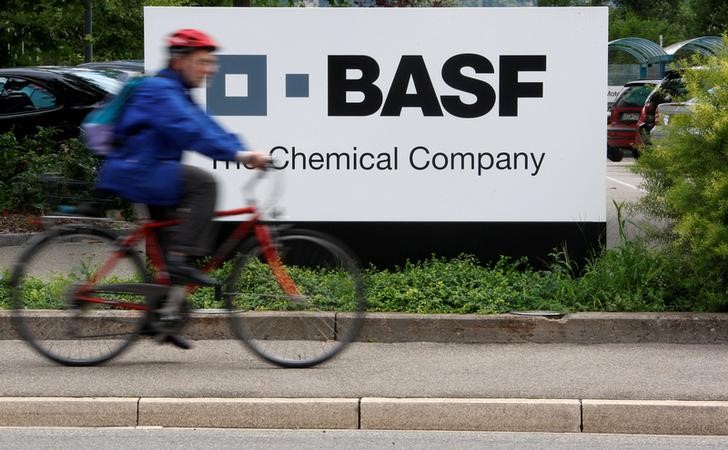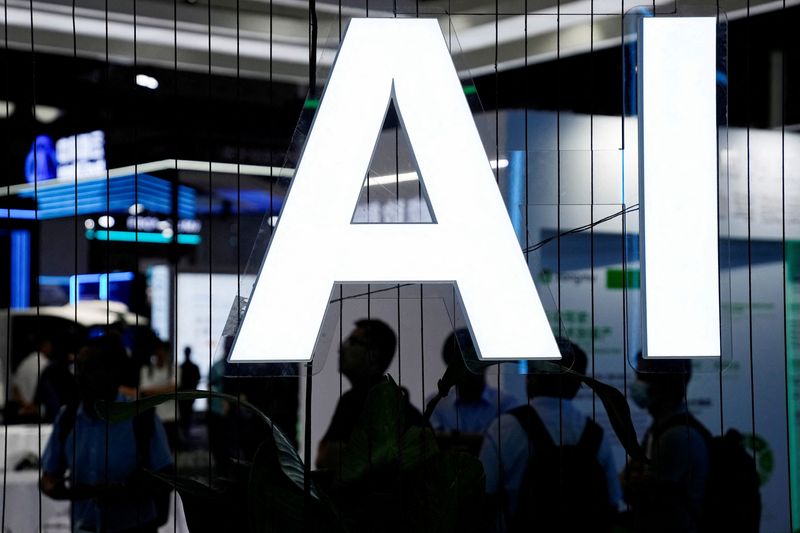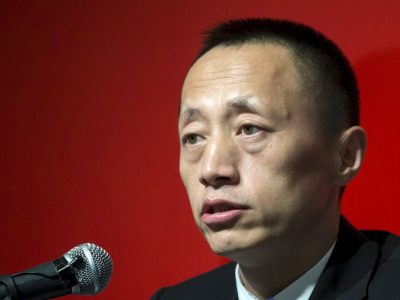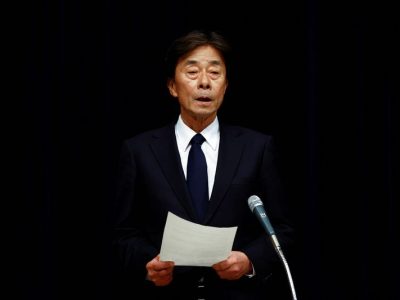
On October 31, 2024, Anika Therapeutics , Inc. (NASDAQ: NASDAQ:ANIK) reported its third-quarter financial results and provided strategic updates during its earnings conference call. The company announced the sale of its Arthrosurface division for approximately $10 million and its plans to divest Parcus Medical. These moves are part of a broader strategy to concentrate on Anika’s hyaluronic acid (HA)-based products in the osteoarthritis (OA) pain management and Regenerative Solutions markets. Anika’s restructuring will include a workforce reduction from 325 to 225 employees and reclassification of revenue streams for improved transparency.
Key Takeaways
Anika sold Arthrosurface for about $10 million and plans to sell Parcus Medical.
The company will reduce its workforce by approximately 30%.
Anika’s Integrity product showed strong performance with a 40% sequential growth in Q3.
The company is making progress with its Hyalofast and Cingal products.
Updated guidance anticipates 16% growth in 2024 for HA-focused products.
Third-quarter revenues were $38.8 million, with a net loss of $29.9 million due to a $27 million impairment from Arthrosurface sale.
Anika expects 14% to 19% revenue growth in its commercial channel for 2024.
Adjusted EBITDA is projected between $16 million and $18 million for 2024.
The company aims to maintain cash flow neutrality during its transition.
Company Outlook
Anika anticipates a U.S. launch of Hyalofast by 2026.
The company projects a 14% to 19% revenue growth in its commercial channel for 2024.
Adjusted EBITDA for 2024 is expected to be between $16 million and $18 million.
Long-term projections indicate continued growth and profitability from Regenerative Solutions.
Bearish Highlights
Third-quarter revenues saw a decline from the previous year.
The net loss for the quarter was significant due to the Arthrosurface sale impairment.
The OEM channel is forecasted to experience a revenue decline of 8% to 10% in 2024.
Lower U.S. sales of OA pain management products through JNJ are expected due to reduced market access and pricing pressures.
Bullish Highlights
Over 500 surgeries using Integrity have been performed since its late 2023 launch.
International OA pain sales increased by 7%.
The core OA pain management business maintains strong EBITDA margins over 20%.
The company is committed to shareholder value through strategic focus and product innovation.
Misses
Revenues declined due to lower sales from partner JNJ MedTech and in the Arthrosurface and Sports Medicine divisions.
The company reported a net loss for the quarter influenced by the Arthrosurface impairment.
Q&A Highlights
Steve Griffin confirmed the company’s aim to remain cash flow neutral for the full year.
Revenue from the divested Arthrosurface business was estimated at just over $25 million annually.
The cost for the Arthrosurface acquisition, including earn-outs, was approximately $77 million.
Discussions for the sale of Parcus Medical are just beginning.
Global headcount will be reduced from 325 to 225 employees.
Anika Therapeutics is undergoing a significant transformation, focusing its efforts on the high-potential HA-based products market for OA pain management. With the divestiture of non-core businesses and a strategic emphasis on product innovation and market expansion, Anika is positioning itself for future growth and profitability. The company’s commitment to maintaining cash flow neutrality during this period of transition is also noteworthy, suggesting a prudent approach to financial management. Investors and stakeholders will likely follow Anika’s progress closely as it works to deliver on its updated guidance and strategic goals.
InvestingPro Insights
Anika Therapeutics’ recent strategic moves and financial results can be further contextualized with insights from InvestingPro. The company’s stock has faced significant challenges recently, with InvestingPro data showing a 32.03% decline in the past week and a 34.61% drop over the last month. This aligns with the company’s reported net loss and the impact of its restructuring efforts.
Despite these short-term setbacks, there are some positive indicators for Anika’s future. An InvestingPro Tip highlights that net income is expected to grow this year, which could signal a turnaround from the current unprofitable position. This expectation is supported by another InvestingPro Tip noting that analysts predict the company will be profitable this year. These projections align with Anika’s own guidance of 14% to 19% revenue growth in its commercial channel for 2024.
The company’s financial health also shows some strengths. According to InvestingPro data, Anika holds more cash than debt on its balance sheet, and its liquid assets exceed short-term obligations. This solid financial footing could be crucial as the company navigates its strategic transformation and aims to maintain cash flow neutrality.
It’s worth noting that Anika’s stock is currently trading near its 52-week low, with a price-to-book ratio of 1.36. This could potentially represent a value opportunity for investors who believe in the company’s long-term strategy and its focus on high-margin HA-based products.
For readers interested in a more comprehensive analysis, InvestingPro offers 11 additional tips for Anika Therapeutics, providing a deeper understanding of the company’s financial position and market performance.
Full transcript – Anika Therapeutics Inc (ANIK) Q3 2024:
Operator: Good morning, ladies and gentlemen, and welcome to Anika’s Third Quarter Earnings Conference Call. [Operator Instructions]. I would like to remind everyone that this call is being recorded on Thursday, October 31, 2024. I will now turn the call over to Matt Hall, Director, Corporate Development and Investor Relations. Please proceed.
Matt Hall: Thank you. Good morning, and thank you for joining us for Anika’s third quarter 2024 conference call and webcast. I’m Matt Hall, Anika’s Director of Corporate Development and Investor Relations. I joined Anika 2.5 years ago in Business Development and have recently taken over Investor Relations responsibilities from Mark, who exited the company earlier this quarter. I have spent more than 15 years in the healthcare and life sciences investment space, and I look forward to engaging with our investors and analysts on the call today. Our Q3 earnings press release was issued earlier this morning and is available on our Investor Relations website located at www.anika.com as are the supplementary PowerPoint slides that will be used for the discussion today. With me on the call today are Dr. Cheryl Blanchard, President and Chief Executive Officer; and Steve Griffin, Executive Vice President, Chief Financial Officer and Treasurer. Please take a moment and open the slide presentation and refer to Slide 2. Before we begin, please understand that certain statements made during the call today constitute forward-looking statements as defined in the Securities Exchange Act of 1934. These statements are based on our current beliefs and expectations and are subject to certain risks and uncertainties. The company’s actual results could differ materially from any anticipated future results, performance or achievements. We make no obligation to update these statements should future financial data or events occur that differ from the forward-looking statements presented today. Please also see our most recent SEC filings for more information about risk factors that could affect our performance. In addition, during the call, we may refer to several adjusted or non-GAAP financial measures, which may include adjusted gross margin, adjusted EBITDA, adjusted net income and adjusted earnings per share, which are used in addition to the results presented in accordance with GAAP financial measures. We believe that non-GAAP measures provide an additional way of viewing aspects of our operations and performance. But when considered with GAAP financial measures and the reconciliation of GAAP measures, they provide an even more complete understanding of our business. A reconciliation of these adjusted non-GAAP financial results to the most comparable GAAP measurements are available at the end of the presentation slide deck and our third quarter 2024 press release. And now I’d like to turn the call over to our President and CEO, Dr. Cheryl Blanchard. Cheryl?
Cheryl Blanchard: Thanks, Matt, and good morning, everyone. Thanks for joining us. Please turn to Slide 3. Today marks an important day in the Anika story, and I’ll start by providing an update on our ongoing strategic review that has been focused on driving the most optimal capital allocation structure. Earlier today, we announced a series of strategic updates, all of which culminate in a renewed focus that Anika will have going forward on our differentiated HA-based products that serve the approximate $4 billion market of OA pain management and Regenerative Solutions. I’ll be speaking more to our updated strategy, but now I’ll take a moment to discuss the details of today’s actions. First, we announced the simultaneous signing and closing of the sale of Arthrosurface and our intent to sell Parcus Medical. Second, we announced a restructuring and rightsizing of our operating expenses to support our more narrowly defined target markets. And lastly, we announced plans to reclassify our revenue to give shareholders a clearer view of our value drivers. Let me take a moment to talk about Arthrosurface and Parcus Medical. These decisions are the result of our previously announced company-wide strategic review to drive the highest total return on invested capital. As part of our robust assessment of our products, pipeline and market opportunities and our experience operating these businesses in what has been a rapidly changing environment over the last few years. We concluded that the Arthrosurface and Parcus Medical portfolio of products would be better suited at another company. The expectations of these acquisitions have fallen short due to a number of factors, including unmet commercial synergies, higher costs and complexities due to the changing regulatory requirements and the capital-intensive investments needed to compete. At the same time, over the last four years, we’ve taken significant steps forward in our Regenerative Solutions and OA pain portfolios. These include launching Integrity last year, formulating a near-term regenerative pipeline around our highly differentiated HYAFF technology, bringing Hyalofast into focus with the expected launch by 2026 and overcoming hurdles to significantly progress Cingal towards an NDA filing. Together with our Board, we’ve decided to narrow our focus and allocate our resources, both financial and human capital on the highly differentiated HA-based products that we will deliver the strongest and highest probability of improved shareholder returns. In addition, this morning, we announced the reduction of our workforce to more optimally fit the needs of our updated strategic focus on HA products. As a result of this restructuring, the sale of Arthrosurface and the planned divestiture of Parcus Medical, we expect global headcount to reduce from approximately 325 to about 225. Our team is ready to take on the value-building opportunities that lie ahead for the business, our customers and the patients they serve. Lastly, beginning in the fourth quarter, we will delineate our revenue between our commercial channel and our OEM channel. In the commercial channel, Anika has full responsibility for sales, marketing and pricing of products through our commercial leaders, direct sales representatives and independent distributors. Conversely, in the OEM channel, Anika is responsible for development and manufacturing of products governed by long-term agreements, but does not control sales, marketing or pricing. Over the last four years, we have been working to drive growth in the products that we sell through our Anika controlled commercial channel globally. This has included enhanced regulatory support for geographic expansion, developing and launching highly differentiated products and investing in sales and marketing operations. Since 2021, excluding Parcus and Arthrosurface, these investments have resulted in 18% annual growth of products sold through Anika’s commercial channel. And in 2024, we expect to deliver 16% growth at the midpoint of our guidance. We’ve proven the ability to deliver growth in the HA-focused products that we sell through our commercial channel, and this represents one of the largest shareholder value opportunities in both the short and long term. Please refer to Slide 4. Turning to this quarter. We have key updates on the major milestones we highlighted in our last call for Integrity, Halofast and Cingal. Let me first start with Integrity. As a reminder, Integrity is our HA-based scaffold for rotator cuff and other tendon repairs, and we’re incredibly pleased with its performance early into the full market release. I’ve talked about its unique structure, design and instrumentation before, all benefits and features that we continue to hear echoed back to us as exceptionally valuable from the surgeons. Integrity is going really well. Let me discuss some of the proof points. We grew the total number of surgeries in the third quarter by greater than 40% sequentially as we completed nearly 200 surgeries, in line with the guidance shared at the end of the second quarter. Consistent with prior trends, 20% of the surgeons using Integrity were new to Anika in the last 90 days. Since the initial launch of Integrity in late 2023, more than 500 surgeries have been performed, and we’re encouraged to see the number of new customers being attracted to Anika’s regenerative products. Integrity competes in a U.S. tendon augmentation market, which is estimated to be more than $220 million annually and grew about 13% in the second quarter of 2024. We expect continued strong growth in the fourth quarter and again anticipate about 40% sequential growth in surgeries. Our updated 2025 guidance, which Steve will discuss in a moment, reflects continued growth of this increasingly important Regenerative Solutions product. While Integrity’s core technology and instrumentation are strong, we recognize the need for robust clinical data to support our expansion into key international markets, including those under EU MDR and to bolster our U.S. marketing efforts. We expect to be ready to begin enrollment in our prospective multicenter post-market clinical follow-up study by the end of this year. The study will enroll 100 subjects with both 26 and 52-week follow-ups. We also have smaller post-market follow-up studies ongoing that we expect to yield data in 2025. With a strong commercial pull of Integrity and adoption accelerating, we’re also advancing this technology platform with a near-term Regenerative Solutions pipeline to further accelerate our growth in our commercial channel. For our first project, we’ve partnered with a leading team of surgeons and expect new shapes, sizes and configurations for Integrity to begin to hit the U.S. market in 2025, with additional HA-driven innovation, leveraging our HYAFF regenerative platform to come in the midterm. Let me now shift to the other product that is key to the midterm plans within our Regenerative Solutions portfolio, the breakthrough device Hyalofast, our single-stage off-the-shelf regenerative cartilage repair solution. We’ve made important progress on our plans to bring Hyalofast to the U.S. market, and we remain on track with our modular PMA filing plan. I’m excited to announce that the first module of the PMA, the GMP module, was filed with FDA on Tuesday of this week. With that done, our focus has progressed to the preclinical module, which we expect to file by early 2025. We then look forward to filing the third and final module, the clinical module, later in 2025. We remain on track to launch Hyalofast in the U.S. by 2026, targeting a growing estimated $1 billion market with expected revenue contributions later that year. Our investments in Integrity, the near-term regenerative pipeline and our commercial channel will lay the foundation to fully capitalize on this significant opportunity. Lastly, I’ll provide an important update on Cingal and our efforts to bring this game-changing product to the United States. We’ve made real progress in addressing important hurdles on our path to filing the NDA. In April of 2023, Anika held a Type C meeting with the FDA, which led to an advice letter this past April. The letter included positive feedback and new challenges that we’re actively addressing. On the positive side, we received further confirmation that the Cingal clinical data is a review issue and not a filing issue. As a reminder, our clinical studies have hit the endpoints that the FDA set forth for us of demonstrating superiority to each of the two active ingredients in Cingal, the steroid triamcinolone hexacetonide and hyaluronic acid. In the Type C meeting, the FDA requested a proposal on our bioequivalence study design. The FDA has since changed their long-standing approach on the Aristospan material needed for the study. Now requiring Aristospan to be manufactured using CMC information from the NDA holder rather than label information as previously guided and that is consistent with the 505(b)(2) pathway. I am pleased to report that we have acquired the Aristospan NDA. This significant achievement addresses that recent FDA hurdle, allowing us to source reference drugs for the bioequivalent study and request a new Type C meeting to finalize that protocol. The FDA had also directed us to complete additional nonclinical testing on Monovisc, our HA used in Cingal as a result of the FDA designating the HA and Cingal as a drug. I’m also pleased to report progress on that topic that, that nonclinical testing will begin in Q1 of 2025. For those investors who are new to the Anika story, these actions have cleared many of the hurdles that have been raised by the FDA for the filing of Cingal in the U.S. And because of the progress to date, we remain more committed than ever to bring this revolutionary pain management therapy to the approximate $1 billion U.S. addressable market. We plan to provide updates as soon as we have clarity from our final Type C meeting with FDA. By executing this strategic shift to focus on our core hyaluronic acid-driven products and pipeline, we are positioned to drive shareholder value by capitalizing on our best near-term and long-term value-building opportunities. Looking ahead, we see three phases to creating shareholder value through our Anika controlled commercial channel. First, we’ll increase revenue within our commercial channel by launching near-term regenerative products and continuing international commercial execution for Orthovisc, Monovisc, Cingal and Hyalofast. Second, medium-term growth will accelerate with the U.S. introduction of Hyalofast, allowing Anika to compete directly in this attractive market. And lastly, Cingal will enter the U.S. market as a next-generation non-opioid OA pain product with an estimated $1 billion market opportunity. Both Cingal and Hyalofast leverage our core HA technology, offering greenfield opportunities that can transform our company’s value. I’m excited about the path ahead that put us more in control of our destiny. I will add that we will, of course, continue to support our partners that constitute our OEM channel as they make investments that will help realize the full potential of our clinically differentiated products. The update to our guidance for U.S. OA pain products sold through JNJ MedTech is reflective of a more competitive and price-sensitive market. However, I want to highlight that our products still hold the market-leading position in the U.S., and JNJ has committed to work to establish stronger market access that will result in more stabilized output in 2026. And with that, I’ll turn it over to Steve.
Steve Griffin: Thank you, Cheryl. Before I review the quarter, I’ll briefly discuss the Arthrosurface transaction. Today, we signed and closed on the sale of Arthrosurface for an estimated $10 million, $7 million through a promissory note payable over 10 years and approximately $3 million subject to sales milestones and customary networking capital adjustments. In the coming weeks and months, our team and the buyer will manage the necessary processes to ensure a smooth handover. Additionally, we announced the planned divestiture of Parcus Medical. Further disclosure will be provided when required. Piper Sandler is managing this process. We announced a planned corporate restructuring to better align our resources following the exit of Arthrosurface and Parcus Medical and our renewed focus on HA products. In the third quarter, we recorded a onetime noncash impairment of Arthrosurface assets for approximately $27 million. We also expect to incur $3 million to $5 million for corporate restructuring activities in the coming quarters. Starting in the fourth quarter, we expect to move historical results of Arthrosurface and Parcus Medical into discontinued operations. As Cheryl mentioned, starting in the fourth quarter, we will classify our revenue into two new categories, our commercial channel and our OEM channel. I’ll provide details, historic results and projections for these channels after discussing the third quarter results. My third quarter remarks are based on our historic sales categories, OA pain, joint preservation and non-orthopedic, consistent with our operations during the quarter. Now let’s review the third quarter results. Please refer to Slide 5 of the presentation. Anika generated $38.8 million in total revenue in the third quarter, down $2.7 million from the same period in 2023. This decline was driven by lower revenue from our JNJ Medtech partner and softness in the Arthrosurface and Sports Medicine businesses, which we announced the sale of and our intention to sell, respectively. This was partially offset by growth in our international OA pain and hyaluronic acid-based Regenerative Solutions. Revenue in our largest product family, OA Pain Management, decreased 2% in the third quarter to $24.4 million, primarily due to lower U.S. sales from JNJ, which faced lower volumes and competitive pricing pressures. Despite reduced market access and lower pricing, Monovisc and Orthovisc remain market leaders in the U.S. While these results were below expectations and impacted full year sales and profit forecasts, we are aware of JNJ’s actions to stabilize sales and increase market access. Offsetting the JNJ results, international OA Pain sales grew by 7%, with year-to-date international sales up 14%. Our international sales team and distributors have gained market share with Monovisc, Orthovisc and Cingal benefiting from geographic expansion into new countries compared to last year. Next, moving to Joint Preservation and Restoration, which includes Arthrosurface, Parcus Medical and our Regenerative Solutions portfolio. Revenue decreased 11% in the third quarter to $12 million, driven by softness in Arthrosurface and Parcus. Offsetting this, Regenerative Solutions, including Integrity, grew 17% year-over-year. Integrity performed well with over 40% sequential growth in cases, in line with our prior guidance and remains on track to be a key contributor in the fourth quarter and 2025. Lastly, non-orthopedic revenue declined 24% to $2.4 million and is down 11% year-to-date. This decline aligns with our prior guidance and is driven by lower sales of mature products. Gross margin in the quarter was 4%, down from 60% last year, primarily due to a $23 million impairment from the Arthrosurface transaction. Adjusted gross margin, excluding this impact, was 65%, down from 66% last year, mainly driven by lower JNJ royalty income for Monovisc and Orthovisc in the U.S. Operating expenses in the third quarter totaled $29.4 million, including $4 million in impairment charges related to the Arthrosurface transaction. This is down $3.2 million from 2023 due to onetime expenses in the prior year and cost reduction efforts. This lower expense profile also reflects a full quarter of benefits from the Q1 2024 cost actions. The company remains on track to deliver $10 million in cost savings from these initiatives, excluding additional cost actions announced today. The net loss for the quarter was $29.9 million compared to a net loss of $6.6 million in the prior year. Adjusted net loss was $3.8 million in the quarter and was down from an adjusted net income of $3.3 million, primarily due to lower revenue and certain tax items in the quarter. Anika generated $5.4 million in adjusted EBITDA for the quarter, up $700,000 from the prior year as cost savings from the Q1 restructuring efforts offset lower revenue. The adjusted EBITDA margin was 14%, down 1 point sequentially due to the lower U.S. OA Pain Management revenue. Now turning to cash and liquidity. We generated $5 million in operating cash flow this quarter, down from $6.5 million last year, primarily due to lower revenue. Year-to-date, we’ve generated $3.8 million in operating cash flow. Capital expenditures were $800,000, up $100,000 from the prior year. We’re investing in our Massachusetts manufacturing facility to support higher expected output of OA pain and Regenerative Solutions products. As previously communicated, we initiated a 10b5-1 stock repurchase plan in May. By the end of the third quarter, we had purchased $5.3 million in common stock. We are on track to complete the initial $15 million share repurchase plan by June 2025 as committed. We ended the third quarter with $62.4 million in cash and no debt. Now on Slide 6, I’ll update our full year financial outlook for 2024 and provide guidance for 2025 and beyond. As mentioned earlier, starting in the fourth quarter, we will separate our revenue into products sold through our commercial channel and our OEM channel. To help investors reconcile the updated guidance, we have included 2024 guidance for both our historic product family view and the new commercial and OEM view. For 2024, we expect revenue growth of 14% to 19% in the commercial channel compared to $36.1 million in 2023. Growth is driven by Integrity and geographic expansions in the international OA pain management market. In our OEM channel, we expect 2024 revenue to decline by 8% to 10% compared to $84.6 million in 2023. This includes revenue from our U.S. Monovisc and Orthovisc partner, JNJ. This updated forecast reflects our revised guidance based on updated commercial pricing and competitive market dynamics. Going forward, Arthrosurface and Parcus Medical are expected to be reported in discontinued operations. For 2025 and beyond, we expect double-digit revenue growth in the commercial channel, up 12% to 18% in 2025 and 20% to 30% annually in 2026 and 2027. This growth is driven by the strength of the Integrity portfolio and continued international sales of OA pain management products. Our assumptions include modest revenue contributions in Q4 2026 from the anticipated U.S. launch of Hyalofast with growth continuing into 2027. In our OEM channel, we anticipate a 12% to 18% revenue decline in 2025, primarily due to the updated forecast for U.S. sales of OA pain management products through JNJ. This reflects near-term pressure from reduced market access and lower pricing expected in 2025. We expect stable to modestly lower revenue from the OEM channel in 2026 and in 2027 as Monovisc and Orthovisc stabilize in the U.S. late next year. Currently, U.S. Cingal revenue is not included in our forecast. We will update investors as we receive FDA feedback. Now turning to profitability. For 2024, we expect total company adjusted EBITDA to be between $16 million and $18 million, factoring in lower U.S. OA pain management revenue. This excludes onetime restructuring charges, transaction expenses or potential impacts from discontinued operations classification in the fourth quarter. More details on all of these items will be shared in the fourth quarter earnings release. For 2025 and beyond, we expect adjusted EBITDA margins in the low double digits, excluding expenses from the Parcus Medical sale and Arthrosurface transition services agreements. The 2025 guidance reflects a lower operating expense profile from our restructuring actions, offset by anticipated lower U.S. OA Pain Management revenue. The 2025 adjusted EBITDA includes investments in our Regenerative Solutions portfolio sold through our commercial channel. These investments cover expanding our commercial team, completing clinical trials for Hyalofast and Integrity and developing new Integrity and HYAFF technology line extensions. The estimated net impact of our Regenerative Solutions portfolio is approximately $14 million in 2025 and in 2026. These investments will help bring Integrity to market and prepare for the anticipated Hyalofast launch by 2026. The core OA pain management business, encompassing both U.S. and international sales continues to deliver strong EBITDA margins and remains highly cash generative. Looking to 2026 and beyond, we expect improved EBITDA margins from the U.S. launch of Hyalofast, which will increase commercial channel sales. As sales grow, we anticipate stronger bottom line contributions, leading to EBITDA margin expansion. Our 2025 through 2027 EBITDA guidance excludes Cingal bioequivalence expenses. We will update investors as we receive clarity from the FDA on next steps and timing. With that, Cheryl, I’ll turn the call back to you.
Cheryl Blanchard: Thanks, Steve. The results of our strategic review represent an important pivot for Anika. The sale of Arthrosurface and the planned divestiture of Parcus Medical mark a strategic shift towards our Regenerative Solutions and OA pain management products, including the commercialization of Hyalofast and Cingal in the U.S. First, we’ve ramped up Integrity in the U.S., achieving a 40% increase in new surgeries this quarter with over 20% of surgeons new to Anika. Second, we filed the first module of our 3-part PMA for Hyalofast in the U.S. on track for market launch by 2026. Third, we’ve made significant progress with Cingal by acquiring the Aristospan NDA, allowing us to start the necessary remaining studies for FDA. We’ve also updated our revenue classification for better visibility into our commercial and OEM channels, reflective of how we will manage our business and build value. And lastly, our updated margin guidance sets a new baseline for Anika. Our OA Pain Management business continues to show strong double-digit 20% plus EBITDA margins, and our investments in the commercial channel and R&D for Regenerative Solutions promise long-term shareholder value. Our team’s successful execution on challenges and opportunities, the Integrity launch, global success of our HYAFF technology, upcoming Hyalofast launch and the potential of Cingal to redefine OA pain management in the U.S. all represent significant growth and value creation for our shareholders. And with that, we’ll open up the line for questions. Operator, please proceed.
Operator: [Operator Instructions] And your first question comes from Jim Sidoti from Sidoti & Co. Please go ahead.
Jim Sidoti: Hi. Good morning. A lot of changes to digest here. So start out a quick one. The non-orthopedic revenue, will that be now part of the commercial channel going forward?
Steve Griffin: No, that’s going to be — that’s a great question, Jim. No, that’s going to be part of the OEM channel. It represents sort of a long-term agreement similar to that of our JNJ relationship. The non-orthopedic and JNJ will be the primary elements of the OEM channel.
Jim Sidoti: Okay. So that’s included in that $76 million to $78 million for 2024?
Steve Griffin: Correct.
Jim Sidoti: Okay. And can you give us any guidance on gross margins in 2025?
Steve Griffin: Under a new restated basis, I mean, I probably will wait until we get through some of the work that’s going to be required to separate out the Arthrosurface and Parcus before we do it. I think it’s a little preliminary to do it because it’s not something we’ve got prepared. We’ve given the EBITDA guidance. So I think that should help you get there.
Jim Sidoti: Okay. You mentioned continued investments in the sales force for the commercial channel. I mean is that something that you wait until you get the products approved for? Or is that something you start right away?
Cheryl Blanchard: Jim, thanks for the question. Yes, I would tell you that over time, even as we’ve been going through this strategic assessment and running these processes, we have been taking a very careful look at what we think the commercial channel needs to look like to continue to drive the 18% CAGR that we’ve seen happen historically. And many of those investments have been made for the time being. We will continue to make those investments largely focused on direct sales reps as we go further into next year, I mentioned that we’ll have some additional kind of short-term product launches that are new shape sizes and configurations for Integrity. We’ve got some other stuff in the works that I’ll give more detail on going forward and then Hyalofast coming. So as we continue to build those products, we will continue to build the direct sales profile of what that commercial channel looks like. And those things are incorporated in that future guidance that Steve provided.
Jim Sidoti: Okay. But just so I’m clear now, the commercial channel, the primary products will be the Cingal international products, the Hyalofast and Integrity. Are those going to be the three primary products for that channel? Or what else is in that bucket?
Cheryl Blanchard: Yes. It’s all the OUS products, which is Monovis, Orthovis, Cingal, Hyalofast really are the main drivers for the OUS business that will be in that commercial channel. And in the U.S., it will be the entire regenerative channel. So that includes today Tactoset and Integrity and then the future product launches in the regen space.
Jim Sidoti: Okay. And it sounds like you think you’ll be able to get through this transition and still be able to at least be cash flow neutral. Is that right?
Steve Griffin: Yes. We haven’t necessarily provided updated cash flow guidance. But for the full year, I’d expect to be relatively neutral. What I would say for now.
Jim Sidoti: Okay. All right, that’s it for me. Thank you.
Cheryl Blanchard: Thank you, Jim.
Operator: And your next question comes from Mike Petusky from Barrington Research. Please go ahead.
Mike Petusky: Can you give sort of the — sorry, if I missed this, the revenue associated with the divested Arthrosurface business.
Steve Griffin: We haven’t necessarily broken out.
Mike Petusky: How much revenue does this — all right.
Steve Griffin: Yes, but it’s probably around $25 million, just north of that in terms of total annual revenue.
Mike Petusky: Okay. Understanding this was before your time, but do you guys by any chance have — I know you paid $60 million cash. Do you have any idea what the earn-out that you all paid for that asset ended up being? I mean, did that end up being something like all in close to $80 million total, meaning $60 million plus $20 million? Or do you have that figure handy by any chance?
Steve Griffin: I do have the figure handy. I think it’s around $77 million total.
Mike Petusky: Okay. Any chance you guys are willing to provide what the sort of project — because you are projecting out EBITDA margins for ’25 and beyond. I mean, can you give a sense of as a stand-alone that JNJ U.S. OA business, what the — if it were segmented, what those margins are? I mean, can you at least confirm north of 20%, north of 25% as a stand-alone?
Steve Griffin: Sure. We can’t necessarily break out that one customer, but we do — I did provide some guidance here to think about how much of an investment we’re making in our regenerative business. And I shared that, that investment is roughly $14 million. So when you do the math to kind of look at our guidance and then think about what the remainder of the business is, that’s our OA Pain, Orthovis, Monovisc and Cingal, you end up in a position where it’s strong 20-plus percent margins, and as I mentioned, highly cash generative. So it still represents an important element of the company. And I think Cheryl’s remarks highlight it well, which is we’ll continue to support our OEM customers, including JNJ because it’s an important piece of the company. But really the growth element of the business is going to come from the commercial channel.
Mike Petusky: Okay. And I guess relative to the Parcus asset that’s remaining to be sold, I mean, I should assume sort of something sort of like Arthrosurface, I mean, pretty modest relative to what you — modest proceeds relative to what you paid for the asset. Is that fair?
Steve Griffin: Yes. We’re literally just announcing it today. So we’ll begin the process of having discussions publicly here, and we’ll share more when we have time to share more.
Mike Petusky: Okay. And the — just last question for me. The global headcount, 325 to 225, that sort of is all inclusive of Arthrosurface, Parcus, all of it.
Steve Griffin: Yes.
Cheryl Blanchard: It is. It’s Arthrosurface Parcus and some additional reductions that were made.
Mike Petusky: Okay. All right. That’s all I’ve got. Thanks.
Cheryl Blanchard: Thank you, Mike.
Operator: At this time, we have no other questions. Please proceed. Ladies and gentlemen, this concludes the conference. You may now disconnect your lines.
This article was generated with the support of AI and reviewed by an editor. For more information see our T&C.












